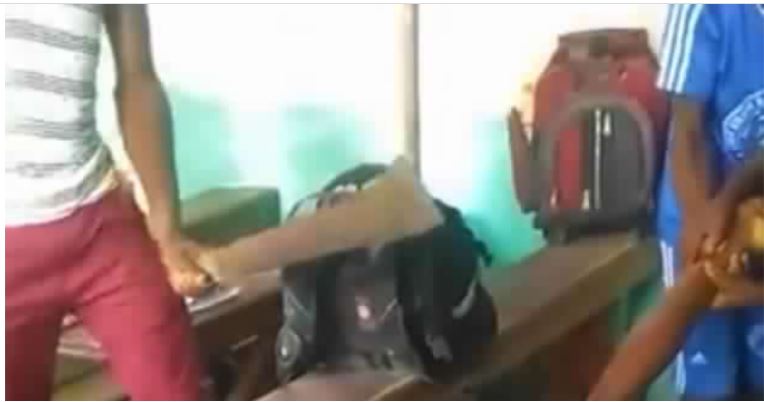Retail online Forex trading is when you speculate on the exchange rate of two different currencies relative to each other, like EUR/USD, GBP/USD, with a view of making profits from your speculation.
For example, if you think the Euro is going to be stronger against the US Dollar, then you can place a buy trade on EUR/USD, and vice versa.
Trading forex in different jurisdictions comes with different challenges, as some countries have different regulations in place and some don’t have any regulations for forex trading.
Traders in Malawi are in a situation where there are issues of lack of regulation for forex trading, so the traders are at risk of losing to unregulated counter parties.
1: Retail Forex Trading is Not Regulated in Malawi
At present, South Africa, and Kenya are the only countries in Africa that regulate online forex trading. The FSCA has regulated around 30 South African forex brokers as per this research & there are 7 CMA regulated forex brokers in Kenya.
But there are no regulated forex brokers in Malawi. Due to lack of regulation, forex traders from Malawi are at the mercy of many fraudulent brokers who take advantage of the vacuum.
Notwithstanding the lack of regulation, Malawians still trade forex via foreign forex brokers in South Africa, Kenya & other countries where regulation by the FSCA, CMA respectively are in place. Most of these brokers accept foreign clients. For example, the broker HotForex which is regulated with both FSCA & CMA, accepts clients from Malawi. But there are many unregulated brokers which are not regulated with any of these regulators, and still promote their platforms to traders in Malawi.
If you fall victim to a fraudulent broker, there is no official regulatory body you would report to, unlike in South Africa for example where you could report to Financial Sector Conduct Authority, FSCA.
Since there is no local regulation, recovering back your funds in case of fraud or if the broker goes bankrupt would be difficult.
2: Leverage Can Make You Lose All Your Money
With leverage, you can enlarge your trade by using a small deposit (margin) as a collateral to borrow the remaining money.
Leverage is expressed as a ratio. For example with leverage of 100:1, you are using 1$ to control $100, therefore you can use $100 to control a trade of $10,000.
If you intend to buy 100,000 units of EUR/USD CFDs at an exchange rate of 1.0555, you would require (100,000 units x 1.0555) = $105,550 to open the order and enter the market.
However with a leverage of 1:1000, to open your order you only need to pay an initial margin deposit of (1/1,000) x $105,550 = $105.55
Should the exchange rate fall by even half a percentage or 0.5%, you get thrown out of the market because you will lose (0.5% x $105,550) = $527.75
This loss is heavy because $527.75 represents 500% of your initial margin deposit. However if you had used a lesser leverage of say 1:10, your loss would have been bearable and lesser.
3: Fees Can Affect Your Profit
Firstly, spread is the difference between ask price and bid price. Your broker would sell a currency to you at higher price, and would buy it from you at a cheaper price the difference between the bid price and the ask price is known as spread, which is measured in pips.
Let’s assume that you buy 100,000 units of EUR/USD at BID/ASK of 1.1073/1.1075, the subtraction gives you 0.0002 or 2 pips. When you close your position, the spread that goes to your broker for this transaction is 100,000 units x 2pips = $20
A wide spread can have a negative effect on your position and reduce your profits
Secondly, interest rate differential, is the difference between the interest rates of the currencies you are pairing.
For example if you are pairing EUR/USD and the interest rate of Euro is 3 50 % while the one for US Dollar is 1.50 %, the differential is 2%.
When you use a currency with a higher interest rate to buy a currency with a lower interest rate, your account will be debited each night you keep the position open. This debits can be substantial if you hold a position open for weeks, and will affect your profit.
However, if you use a currency with a lower interest rate to buy one with a higher interest rate, your account will be credited for as many nights as you keep the position open. This concept is called a ‘carry trade’.
Thirdly, some brokers charge commissions each time you make a trade while some do not charge. The commission could be per round turn meaning every time you buy and sell.
The implication is that for as many times as you re-enter the market, you pay that commission and it can affect your earnings.
Lastly, margin interest is charged on the due loan offered to you by your broker to enlarge your trading position. It is usually charged on leveraged position you hold overnight.
4: Use Volatility Indicators to Set Stop Loss Orders
A stop loss is an order you set to exit your trading position when a stop price point is reached, so as to limit your potential losses.
For example, if you buy the EUR/USD currency pair at a price of 1.4722 and you place a stop order at a stop price of 1.4500. Your order would come into effect when the price drops to 1.4500.
However to pick the best stop price to set your stop loss at, can be difficult. Too close to the entry price, and you get easily stopped out when price volatility increases, too far and you incur heavy losses.
Volatility indicators help you pick the proper stop price at which you set your stop loss order. This is because when volatility is high, prices swing up and down extremely and you see record highs and record lows.
These wild swings could be due to news reports, political instability etc. Indicators include Bollinger bands and Average True Range (ATR), amongst many others.
Firstly, the bollinger band is an indicator you can use to spot overbought or oversold conditions. You can use it to know if the volatility is high or low.
When upper and lower bands come together, it shows low market volatility. On the other hand, when the bands are widened, it means high volatility.
During high volatility you could set your stop loss as a stop price far away from your entry price to give room for wild price changes without getting stopped out.
Secondly the ATR indicator gives you a clue on how much the price is expected to move within a particular period. The information you get determines whether you should attempt to enter a trade
The ATR has readings so you set your stop loss at a multiple of the reading. Example if the ATR is 100 then you can put your stop loss at 2 x 100 = 200 pips below entry price. You get to choose the multiple it could be 2x, 3x, 4x etc.
5: Malawi Has a Strict Forex Anti-Money Laundering Laws
Malawi has an exchange control act that controls the way foreign currency is spent in the country. Malawi is a landlocked country that depends on foreign aid to get FX for imports of fuel and other necessities.
Today due to shortage of FX for fuel imports, a fuel crisis is building as there are fuel queues and motorists rely on fuel smuggled in from across the Mozambique border.
With such a need for FX, Malawi doesn’t tolerate speculative behaviour and hoarding of FX. The scarce FX is channelled into importation of needed commodities.
This law has strict requirements on how FX is used in the country, part of the law says except with the permission of the Minister:
- You are only allowed to buy FX from a bank
- You are only allowed to sell FX to a bank
- You must use FX gotten from a bank for the purpose it was granted
- You are not allowed to send FX out of the country except you are a bank
Forex traders will find it difficult to get FX for trading even in the parallel market, and may end up paying FX conversion fees to their brokers for this service if they allow it. And this is a difficult situation for retail traders.
6: You Can Copy Trades From Master Traders
Copy trading is an aspect of social trading which lets you copy the trade patterns of a trader who is more experienced than you.
Before copy-trading, it is advisable that you do your own proper research on copy trading before channelling your money into it.
We have two types of copy-trading: Automatic and Manual.
- Automatic copying: You register with a broker that supports copy trading, and choose one or more other master traders. After this, copying of transactions of the master traders would be automated. This system is less rigid, but it doesn’t eliminate risks.
- Manual copying: You would choose a master trader whom you want to copy. He announces his position and you follow it. This type is suitable for those who already possess the basic understanding of Forex trading.
Do your Research
It is advisable to avoid trading until there is a regulatory framework, as this will ensure that your funds are protected. If you do decide to trade with a foreign broker, only use your spare money and make some research to find reputed foreign brokers.

.jpg&w=60&q=100&h=60)



-1.jpg&w=60&q=100&h=60)







